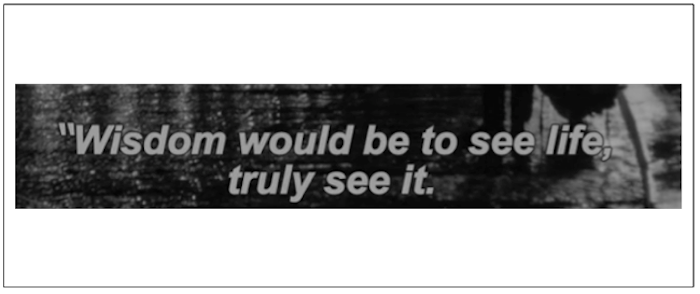Seeing this movie, I felt like a Parisian café dweller eavesdropping on a particular group of people as I watched the world go by. The dialogue was so natural and unvarnished, it could only be the fragments of an overheard conversation. Like an extension of the French custom of people-watching, this film celebrated those little details, plot lines, and tiny idiosyncrasies that you fill in about someone when you pass him or her on the streets. Skipping to the beat of France in the '60s, this movie presents a perfectly imperfect picture of life as a blithe adolescent in that time and place.
A personal note on a somewhat fascinating generational difference: the absence of the awkward phenomenon 50 years ago. There were many thoughtful pauses, deliberate pauses, glaring pauses, and lingering pauses throughout the dialogue, but not a single "awkward pause." Instead, everyone just seemed to say what they needed to say, ready to accept, or rather ignore, the consequences. Any silence that ensued was embraced, reveled in, and/or patiently accepted. As a result, the conversations they had were sweetly blunt and straightforward. No need for the frills and trimmings of forced wit and humor that's a necessary in small talk nowadays so as to avoid, dismiss, or acknowledge awkwardness.
What's more, this movie isn't like the idealistic, candy-coated rom-coms of today. And as a matter of fact, it isn't like most major flicks of today, the ones that glorify all of life's significant moments. Instead, Masculin Féminin focuses on the un-glorious moments, those common points in time that happen everyday. Pointless chat in a laundromat, trivial talks at dinner on a weekday night, standing up to buy popcorn at the movies. They all take place without atmospheric music or dramatic cinematography. Even the more dramatic moments (political vandalization, abrupt conversations on sex) play out without the typical glaze of Hollywood. Everything that happens just happens. It's like a study in mindfulness. This movie lives in the present and attempts to see the present how it is. I wish I could do the same. And interestingly enough, not glorifying those little things actually does glorify them, in a nostalgic, ironically aspirational way.
By giving as close a portrayal of teenage life in 1960's France as it could, albeit a delightfully artistic and subtle one, this movie is all the more effective in making its observations on people, society, etc. etc. plausible. And, as I've mentioned, a big factor that contributes to its true-to-life vibe is the script; it's so organic and unsentimentally observant. As proven by other French films I've seen (Jean de Florette, Manon des sources, Entre les murs), French cinema seems to have a knack at sharp, simplistically wise dialogue that illuminates one small, yet nevertheless important and universal, slice of human existence.
Alright, that concludes my philosophical rant for the day. Enjoy the trailer below:
P.S. I just discovered The Criterion Collection on Hulu. It's unbelievably fantastic. See their page on Masculin Féminin here.




No comments:
Post a Comment